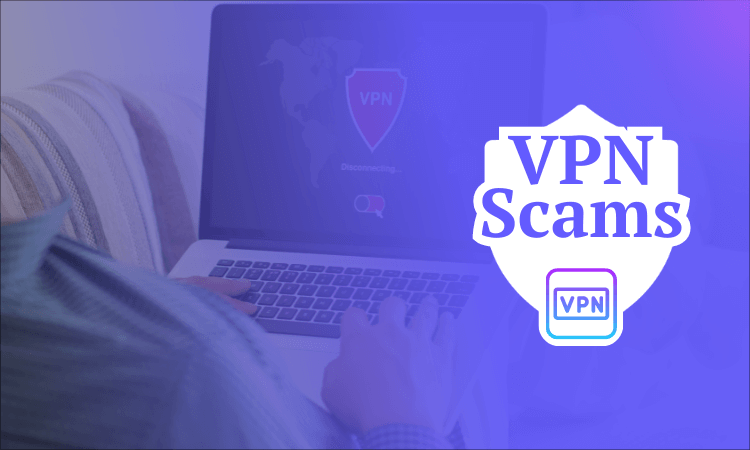
Warning List: Fake VPN Scams in 2025
Quick Summary: VPN Scams
VPN scams are real, and they come in the form of cracked apps, lifetime subscriptions, fake no-logs policies and asking for too much personal information. Pay particular attention to free VPNs apps — remember that VPN companies make money from you somehow, and unless the free VPN app is part of a “freemium” legitimate service, you’re likely paying with your data.
The best VPNs are very good at keeping your online traffic safe from external interference, but not all VPNs are trustworthy. Some bad actors have taken advantage of increased VPN demand to stage different VPN scams that trick people out of their money and compromise their online privacy.
This article covers common VPN scams, like the use of cracked VPN apps and fake lifetime VPN subscriptions and how they work. I will also briefly go over some of the worst services on the VPN market so you can avoid them like the plague. Read to the end to learn about some unsettling VPN scams, or read up on other internet scam statistics.
Types: The Most Common VPN Scams
Scammers are innovative people who use every opportunity to take advantage of others. Here are some of the most common virtual private network scams.
- Cracked App Scams — Cracked VPN accounts let users access premium features for free, but the account belongs to someone else.
- Resold VPN Account Scams –When a VPN account owner shares VPN access for a smaller fee, but then they may lock you out once you’ve paid.
- Free VPNs Scams — A VPN isn’t “free” if it sells your data or uses your devices data.
- Lifetime VPN Subscription Scams — “Lifetime” VPNs might go defunct after taking your money.
- Fake VPN Reviews and Testimonial Scams — VPNs can pay people to say positive things about a fake VPN app or bad service.
- Fake or Vague No-Logs Policy Scams — Many VPN providers will collect data despite claiming to have a no-logs policy.
- VPN Malware Scams — Many free VPN apps contain malware, which can bombard you with intrusive ads, steal sensitive information or expose you to more malware.
- VPNs Asking for Too Much Personal Information — When a VPN asks for information beyond your email address and payment information.
- Unsecured VPN Scams — VPNs might not use proper encryption on its VPN servers, or even on the website.
Let’s dive into more details about all of these common VPN scams.
1. Cracked VPN Apps
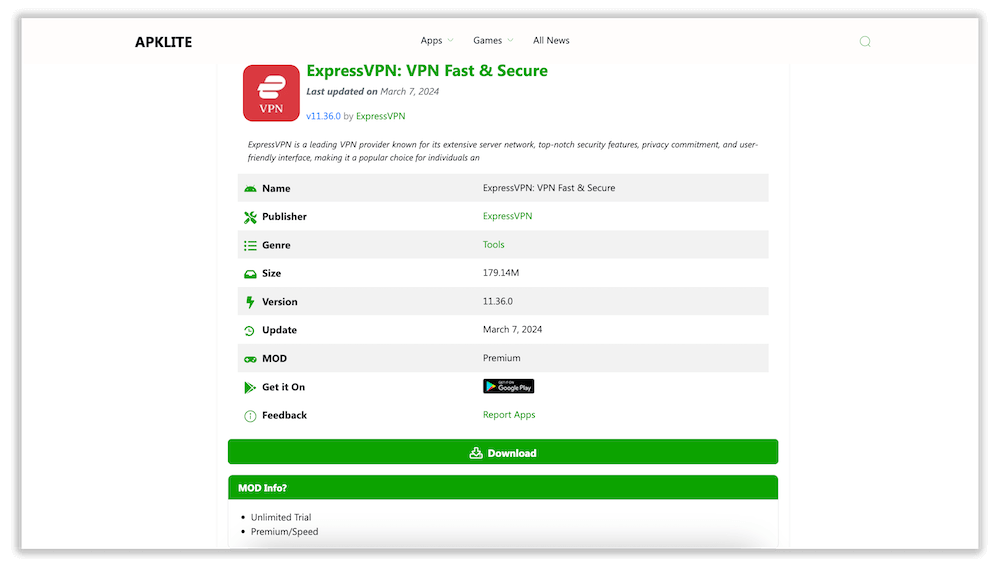
Software/app cracking is a process of illegally breaking software protections or using stolen product keys to circumvent licensing and usage restrictions. This allows users to access all the premium features of an app without paying anything.
Irresistible as that may sound, most of these cracked accounts belong to someone else, which makes them unsafe to use. Furthermore, you may end up downloading adware or malware disguised as a cracked VPN, and that’s when the real nightmare begins.
You may start to experience lots of pop-up ads that interrupt how you use your device. Hidden malware can discreetly collect sensitive data that hackers can use to steal your identity and even empty your bank accounts.
Genuine premium VPNs don’t have cracked versions, which explains why you can only find cracked VPNs on third-party websites. If you want to save money on a VPN service, check out our best free VPN article instead.
2. Resold VPN Accounts
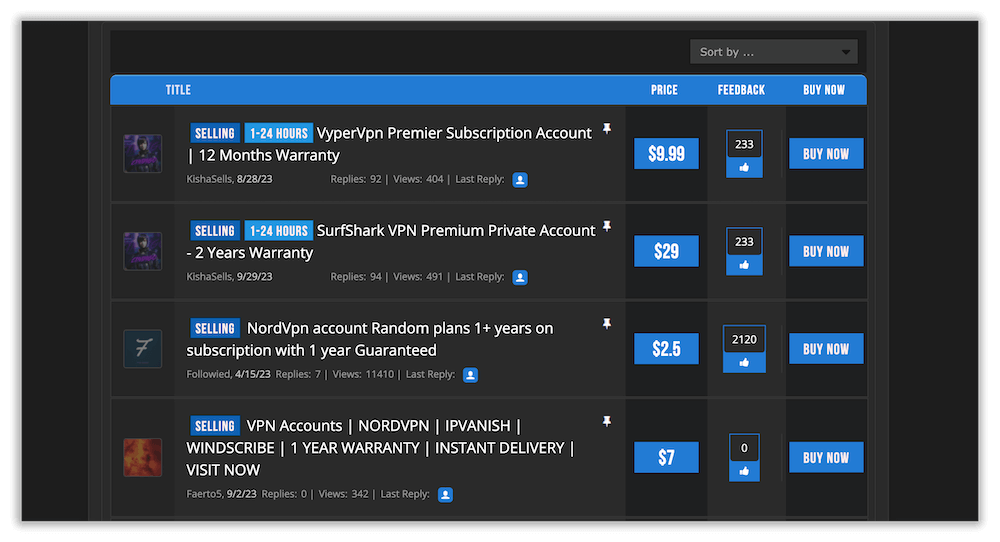
When you buy a VPN subscription, the service is generally tied to your email address, which you use to access the VPN on various devices. However, to make extra income, some VPN users resell their VPN accounts to multiple people at a slightly lower price.
This works best for VPNs like Surfshark, which offer unlimited simultaneous device connections — read our full Surfshark review for more information on the VPN.
However, this carries a huge risk since the account’s original owner still has power over the account. They may change the password and lock you out once you’ve paid, and there’s nothing you can do about it. Again, there are better ways to save money on a VPN — our best cheap VPN list goes over a few of them.
3. Fake Free VPN Services
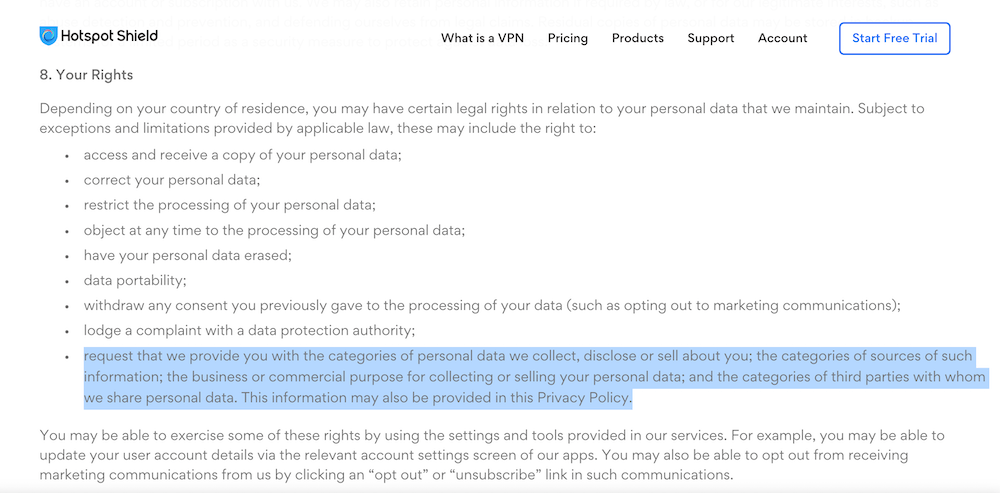
Many reputable VPNs offer free versions or free trials. However, some free VPN services come with many strings attached that put your privacy and security at risk. The rule is always simple: If the VPN isn’t making money from paid subscriptions, it’s getting it via other means.
Take the time to read the fine print. Many free VPNs could log your data and track your online activity, then sell that information. For example, in Hotspot Shield’s privacy policy, it states that you have to opt out of the VPN company selling your data. Read our full Hotspot Shield review for more information.
Another example of fake “free” services: some VPNs offer a free plan but might also use your devices when you’re not on them, and also route other users through your devices. The Hola VPN free app, for example, uses Windows and Android device’s WiFi and cellular data when you’re not using it.
4. Lifetime VPN Subscriptions
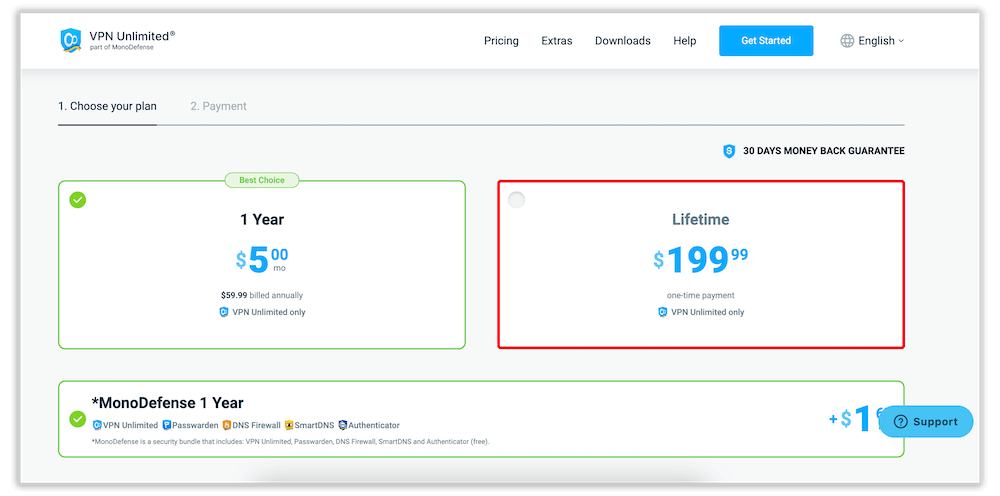
I do not know of any legitimate VPNs offering lifetime plans. Always suspect lifetime subscriptions in the VPN industry. There’s no way for a VPN to guarantee that a lifetime subscription will actually last your whole life.
A lifetime VPN subscription has one aim: to take a large chunk of your money before you realize how bad the service you’ve paid for really is. The offer of lifetime savings just has to convince you to hold out past the refund period. If you then become unsatisfied with the VPN performance, you’re out of luck.
5. Fake Reviews and Testimonials
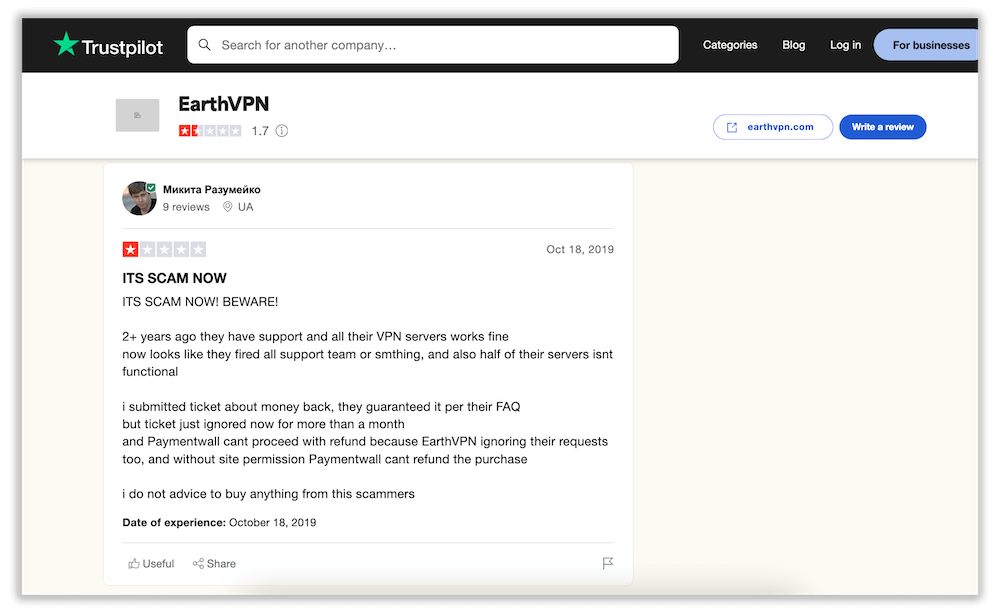
Scammers understand how important online reviews are for online purchases like VPN subscriptions. Once they’ve created a fake VPN, getting a few people to say positive things about it is easy and cheap. For instance, EarthVPN has active reviews on Trustpilot despite the VPN’s website barely functioning. The few available links don’t work when you click on them.
Before buying a subscription, do your research and find blogs and review sites (like this one) that analyze the service without fear or bias. Proper VPN reviews involve real-time testing that provides a more credible picture of the service. Comments alone don’t cut it.
6. Fake or Vague No-Logs Policies
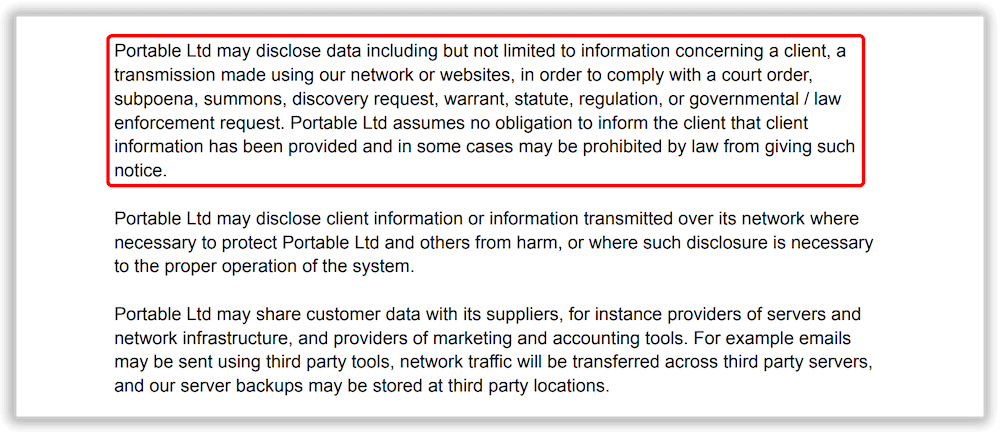
You know those long “terms and conditions” sections we all hate reading? Well, that’s where the devil loves hiding all the nasty details, and if you’re keen enough to go through it, you’ll catch plenty. Fake VPNs rarely have true no-logging policies with no loopholes.
You need to determine the type of data a VPN service claims to store and what it discards, with a special focus on your IP address and email address. This doesn’t just apply to fake VPNs; even the most reputable services are known to bend the truth, which is why independent audits are important in the VPN world. I rarely touch virtual private networks that haven’t been independently vetted.
7. VPN Malware Scams
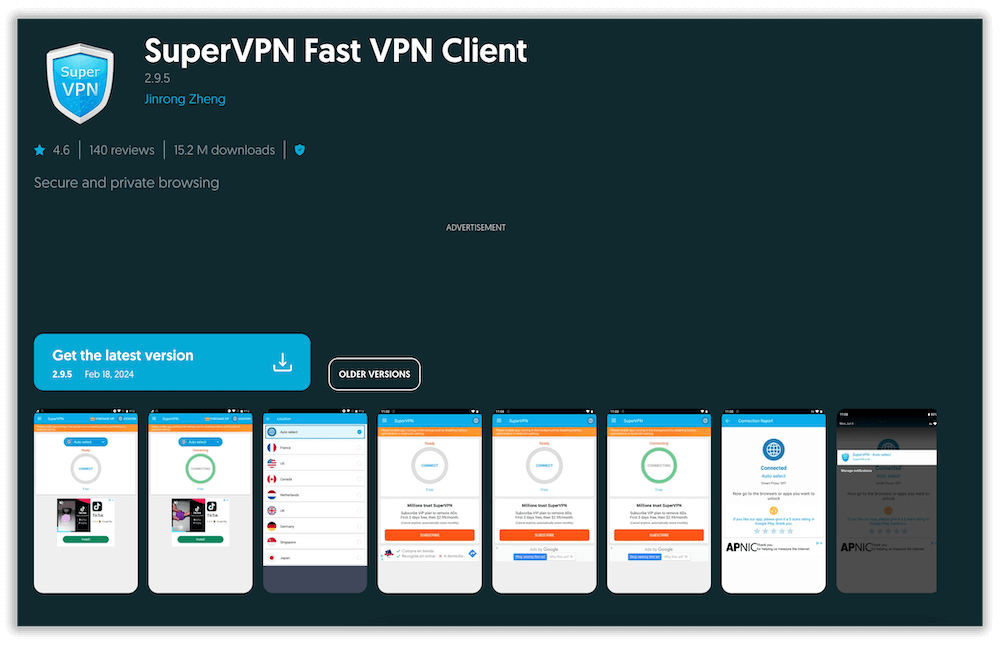
This is one of the most dangerous VPN scams because you never know what may hit you. Injecting malware into devices through app downloads is the most successful method of hacking since people never pay close attention to what they’re downloading, especially when it’s free.
Once malware is on your device, it can bombard you with intrusive ads, steal sensitive information or expose you to more malware. SuperVPN is an example of a VPN with a long history of security breaches. This malware-riddled VPN experienced a data leak that exposed millions of user details, and Google de-listed it for being too exposed to vulnerabilities.
8. VPNs Asking for Too Much Personal Information
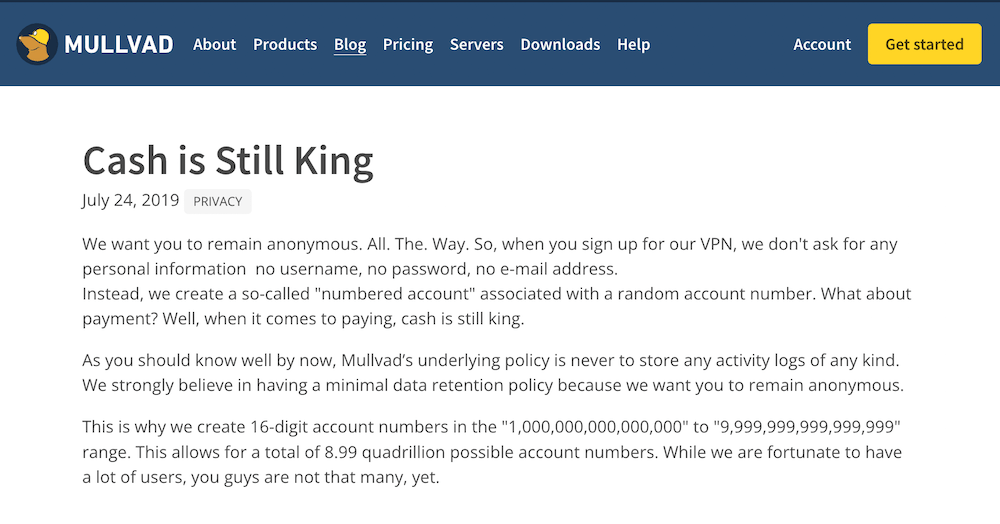
Mullvad VPN even lets you pay in cash for ultimate privacy.
When signing up for a VPN, you usually provide your email address, which acts as your identity and a way for customer support to communicate with you. You also provide payment details. In fact, some reputable VPNs provide cryptocurrency or cash options if you’re uncomfortable with sharing your card or PayPal details.
So, when a VPN goes beyond the standard details of your email address and payment information, it becomes cause for concern. If you are asked to enter your precise home address, social security number or phone number, turn the other way and run as fast as possible. If you want the most private VPN, read our Mullvad review for a premium VPN that lets you pay in cash.
9. Unsecured VPNs
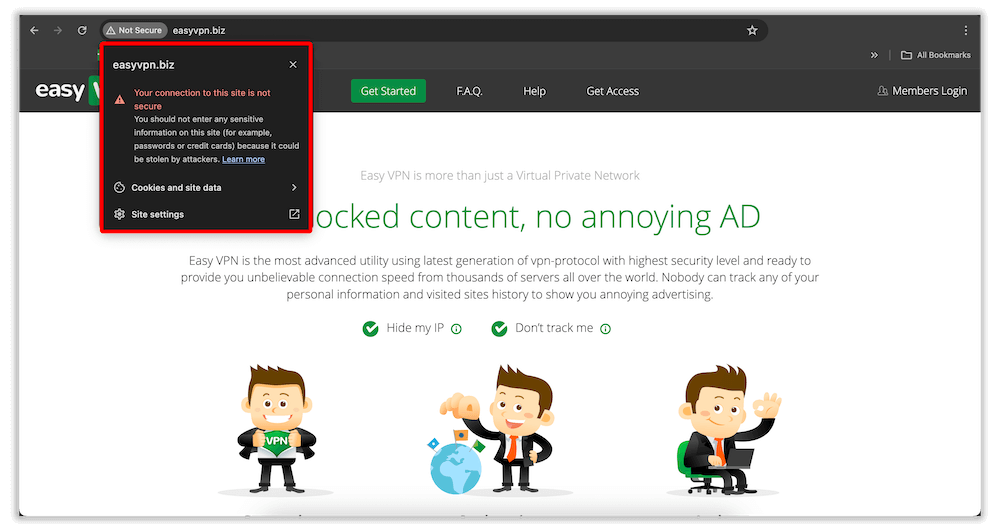
It’s easy to tell when you’re dealing with an unsecured VPN provider. The first telltale signs are unsecured VPN websites. If the official VPN website address uses HTTP instead of HTTPS, avoid it at all costs. HTTPS encrypts your data, while HTTP lets anyone see the information you enter on the website.
Another important sign that you’re dealing with scammers is the lack of standard VPN protocols like OpenVPN or WireGuard. When a VPN claims to use proprietary protocols, it would be wise to test and see if any form of encryption is available. You can easily do this for free on apps like Wireshark.
Are VPNs a Scam in General?
No, VPNs aren’t a scam in general; there are just a few bad apples that give the whole industry a bad name. This is not to say that the most reputable services are without fault, but they do address problems when they arise.
This has been illustrated many times with VPN services like NordVPN, which experienced a data breach in 2018 and dealt with it immediately by making drastic changes like switching to RAM-only servers.
Is ExpressVPN a Scam?
No, ExpressVPN isn’t a scam. It offers AES-256 encryption and reliable IP and DNS leak protection through the network kill switch. ExpressVPN doesn’t store any user logs; all its servers are RAM-only. The VPN has also been independently audited multiple times and found to be legitimate and safe. It’s why I consider ExpressVPN to be the best VPN provider, period. See our ExpressVPN review for more details.
Is NordVPN a Scam?
No, NordVPN is not a scam VPN. It is equipped with standard encryption, which prevents your ISP from intercepting your online traffic and seeing the sites you visit. NordVPN offers reliable IP and DNS leak protection and has been independently audited by reputable audit firms, which found nothing suspicious. It offers strong online security features you can trust. You can learn more from our NordVPN review.
How to Spot the Worst VPNs That Seem Legitimate
Some VPNs are downright bad, and there’s no need to sugarcoat it. VPN providers are bad when they log user data, work with third-party entities that buy your data, experience DNS leaks or have a long history of data breaches.
Keep a critical eye on any free VPN service — they are often too good to be true. Read our guide on how to spot a bad VPN to make sure you avoid these providers and find reliable VPN services instead — but for some quick tips, read below.
How to Avoid VPN Scams: My Pro Tips
You can easily avoid VPN scams by following these tips.
- Avoid unaudited VPNs: Audits are the most reliable way of determining whether a VPN delivers on its claims. Unaudited VPNs can’t be fully trusted, so avoid them if you can.
- Don’t fall for lifetime offers: Lifetime subscriptions are often a marketing ploy to grab your money and then dip. There are always hidden charges that you can’t escape from.
- Research VPNs beforehand: Read reputable VPN review sites that showcase VPNs’ good and bad sides through verifiable tests. Check the VPN’s online documents for any grammatical mistakes.
- Don’t divulge personal information: Beyond your email address and payment details, don’t provide details of your home address, phone number or social security number, as they’re unnecessary for VPN services.
- Check the VPN’s functionality: A VPN that lacks important features like encryption or a kill switch is a red flag and should be avoided. Ensure the VPN adheres to a clear no-logging policy.
Conclusion: VPN Warning List
VPN services are businesses, so cutting corners and lying are always within the realm of possibility for most of them. It’s easy to be scammed since VPNs are considered safe, which is what VPN scammers count on. Fortunately, it’s not hard to tell a real VPN from a scam when you take a closer look.
Fake VPNs over-promise their capabilities, offer deals that are too good to be true, have raving positive reviews despite not being well known and dangle goodies like lifetime subscriptions to get your attention. Always be careful when researching VPNs to avoid falling for scams, especially with free VPN providers.
Have you ever come across fake VPN apps? Have you ever downloaded a bad VPN directly from the VPN website or from the Google Play Store? Is there a VPN network you trust with your online privacy and security? Do you have examples of outrageous VPN claims or other suggestions for the most popular VPN scams? Let me know in the comments. Thanks for reading!
FAQ: VPN Scam Guide
Are VPNs a Scam?
Not all VPNs are scams. Many VPNs are safe to use, but countless others are fake and use different tactics to compromise user devices.Does a VPN Protect You From Viruses?
A VPN doesn’t protect you from viruses; it encrypts your traffic to prevent unauthorized parties from intercepting it. Only antivirus software can deal with viruses.Are There Fake VPNs?
There are multiple fake VPNs online, usually in the form of free or cheaper cracked VPN apps with malware and spyware hidden within.

Leave a Reply